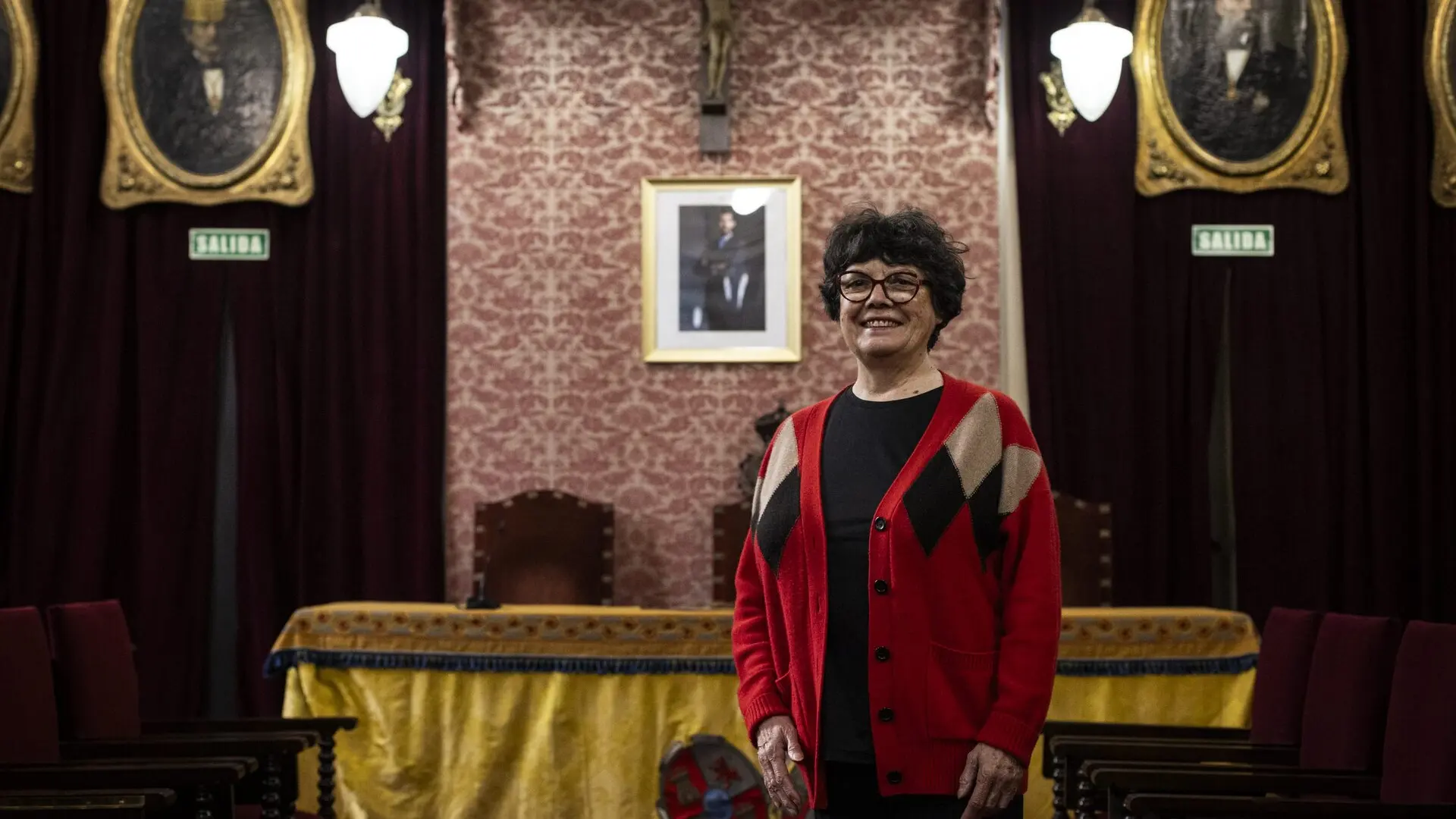“There will be a tuberculosis pandemic, but we already have a vaccine to stop it.”

Institut Pasteur microbiologist Brigitte Gicquel (Saint-Denis, 1948) is a world authority on the genetics of the tuberculosis bacillus. She and Carlos Martin are the “fathers” of the MTBVAC vaccine. Earlier this month she was named honorary academician of the Royal Academy of Medicine of Zaragoza. The prestigious researcher visited with an Aragonese professor the Biofabri plant in Galicia, which is ready to produce millions of doses of the vaccine created in the microbiological laboratories of the Faculty of Medicine of the University of Zaragoza. Gicquel emphasizes that although the third phase has not yet been completed, “they made the investment believing that the MTBVAC vaccine works!”
What did being named honorary academician of the Royal Academy of Medicine of Zaragoza mean to you?
This is recognition of more than thirty years of collaboration between my unit at the Pasteur Institute and a group from the University of Zaragoza in the development of the MTBVAC vaccine against tuberculosis, which, although not on the market, is already being produced at industrial level. .
You decided to research tuberculosis, the disease that causes the most deaths, even though no one wanted to do it, why?
Mycobacteria such as Koch’s bacillus are very difficult to work with because they grow very slowly and are also pathogenic. But at the Pasteur Institute the situation was exceptional, since there was no urgent need to have results for publication in scientific journals. In addition, molecular biology and sequencing were born. I started with a diagnosis of tuberculosis and worked on developing the genetics of bacteria.
What was the young Carlos Martin like when he joined your group at the Pasteur Institute?
He came because of his knowledge of medicine, because at the Pasteur Institute there are more scientists than doctors. We appreciate your experience working with Professor Gomez-Luz in the area of antibiotic resistance, as genetic markers are needed to study genetics. So Gomez-Luz decided to send him to Paris. He started with a three-month fellowship, a further two years with a WHO fellowship, and then received a professorship at the Pasteur Institute.
What makes you think that he decided to return from the Pasteur Institute to the University of Zaragoza?
At first it was a tragedy, but then it was a great opportunity because, thanks to European projects, funding was received to develop the project at the University of Zaragoza and form a team.
Can we say that you and Carlos Martin are the father and mother of the tuberculosis vaccine?
Certainly! (Laughter) We just visited the Biofabri vaccine plant, and the information they offer about the MTBVAC process says this: We are the parents of the vaccine.
In this long journey of the MTBVAC vaccine, when do you expect it to hit the market?
In less than five years, phase 3 results will be available. This is a very complex process: it must be demonstrated that it is safe (phase 1), immunogenic (phase 2) and effective (phase 3). Biofabri is already ready to produce the vaccine at a plant in Spain and another in Portugal. This can speed up the entire marketing process. Millions of doses are needed, and Biofabri is now ready to produce them. They made the investment believing that the MTBVAC vaccine works!
Will the next pandemic be caused by resistance to TB antibiotics?
Absolutely. And this vaccine will be able to prevent all forms of tuberculosis.
Does this mean we will be ready to stop this with the MTBVAC vaccine?
Certainly! Tens of thousands of deaths will be prevented. There are currently 300,000 patients with multidrug-resistant tuberculosis.
When is this pandemic expected to start?
It’s hard to say… There is treatment for tuberculosis, but it requires taking many medications and takes a very long time. In many countries, one antibiotic is given for a short time and the strain becomes resistant or multi-resistant. This especially happened in the 1990s with AIDS: people became infected with multi-resistant strains, because normally the bacteria become weaker, and with HIV it is transmitted through suppressed immunity. It is impossible to predict when a multidrug-resistant tuberculosis pandemic will occur because the epidemiology of all diseases changes. For example, in Madrid, in Toulouse there will be malaria because people will be infected. There will be problems associated with co-infections, leading to decreased population immunity and possible increased transmission of multidrug resistance.
What do you think about using artificial intelligence to find new vaccines?
This is a unique tool because it allows you to compare millions of data points and detect small differences that humans cannot see. But you need human capabilities to analyze this data.
Carlos Martin’s team includes other researchers who collaborated with the Pasteur Institute. What is your opinion about them?
They are gorgeous! Very hardworking.
